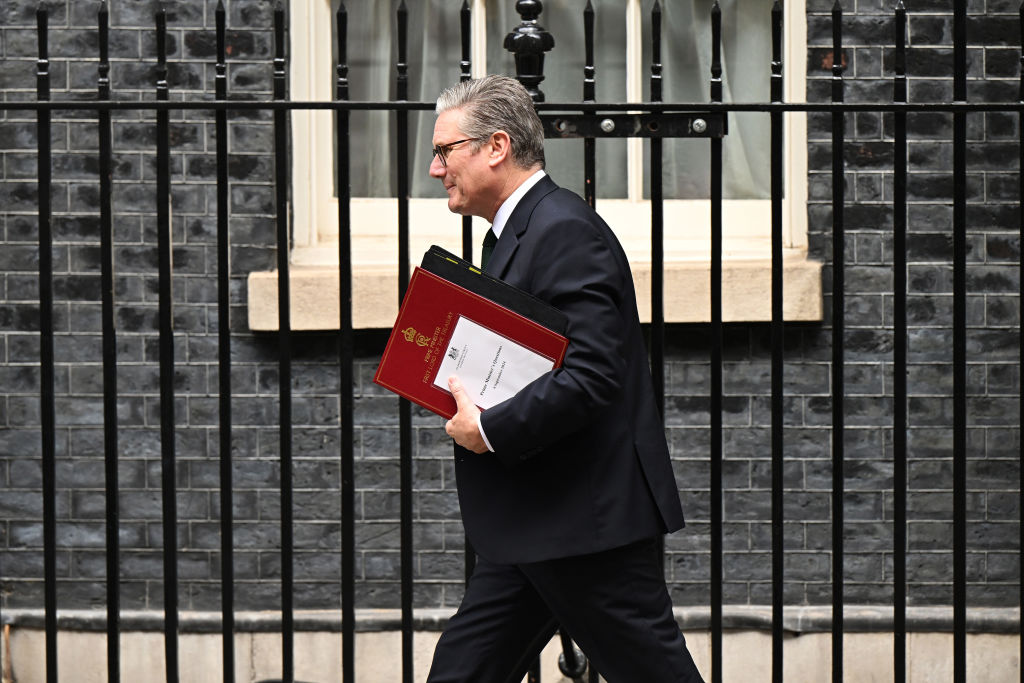After announcing that his government would cut winter fuel payments, Keir Starmer is now facing down a potentially major rebellion. Ten Labour MPs have signed a non-binding motion calling for the measure to be delayed ahead of this evening’s vote. Sharon Graham, the general secretary of Unite, accused the Prime Minister on Sunday of “picking the pockets of pensioners” who are the main target of the cuts.
Starmer himself, meanwhile, seems unfazed, saying that his government must be “prepared to be unpopular”. This is strange politics from a Labour leader. Starmer seems to be drawing on his background in the Civil Service and as head of the Crown Prosecution Service, where this sort of language is commonplace and people often compete for who will make the toughest decision. Yet this sort of messaging makes for awful politics — particularly when it comes from the Left.
Unsurprisingly, Starmer’s favourability ratings are crashing through the floor. He was never popular — two days before the election his net favourability rating was around -18% — but in recent weeks it has fallen a further three percentage points to -21%. If this continues, and the current rebellion grows in the future, Starmer might find out soon enough that the “tough talk” that enabled him to progress in the Civil Service might impair him in office.
The reality is that Starmer and his Chancellor misled the public. While it is true that Rachel Reeves stated that the situation with the public finances was grim during the election, neither she nor the Prime Minister explained to the British people that if Labour were elected the population would be treated to a harsh campaign of fiscal austerity. The public voted for Labour in the hope that it would fix the economy after the Tories were judged to have mishandled it. But now they are getting the same stagnant economy with tax hikes and spending cuts.
Labour no doubt hopes that an impending cut to interest rates in the United States might allow the Bank of England to cut rates in Britain, and that this might juice the economy. While an interest rate decline in Britain might help lift the housing market at the margin, it would have a minimal impact on overall growth and hence on tax revenues. In addition, it appears that the Federal Reserve is watching an indicator known as the “Sahm rule”, which currently reads as if the United States is entering a recession. If this were to occur, the austerity currently imposed by the Starmer government would become far worse as unemployment claims rose and tax revenues fell.
The Prime Minister is listening intently to his former colleagues in the Civil Service while undertaking this austerity. But what is so frustrating to many is that it was these same civil servants who supported the ideas which led to the overspending in the first place. Winter fuel payments are being cut because the sanctions and counter-sanctions that occurred due to the Ukraine war led the Government to introduce an enormously costly energy price guarantee which is now also quietly being cut. No one ever explained to the public or even to the politicians the severe economic consequences of the war — and most people are still unaware that these consequences are at the heart of the present austerity.
Just last week it was reported that Starmer had a portrait of Margaret Thatcher removed from his study in Downing Street. At the time it was said that he was doing this out of his dislike of the former Conservative prime minister. Considering the recent cuts, there may be a more likely explanation. Really, Starmer does not want to be reminded that when Thatcher engaged in cuts arguably shallower than the ones he is proposing, the Left branded her a “milk snatcher”. Starmer may soon earn a similar legacy. The liberal press is already turning on him, and the present rebellion will certainly not be the last.











Join the discussion
Join like minded readers that support our journalism by becoming a paid subscriber
To join the discussion in the comments, become a paid subscriber.
Join like minded readers that support our journalism, read unlimited articles and enjoy other subscriber-only benefits.
Subscribe